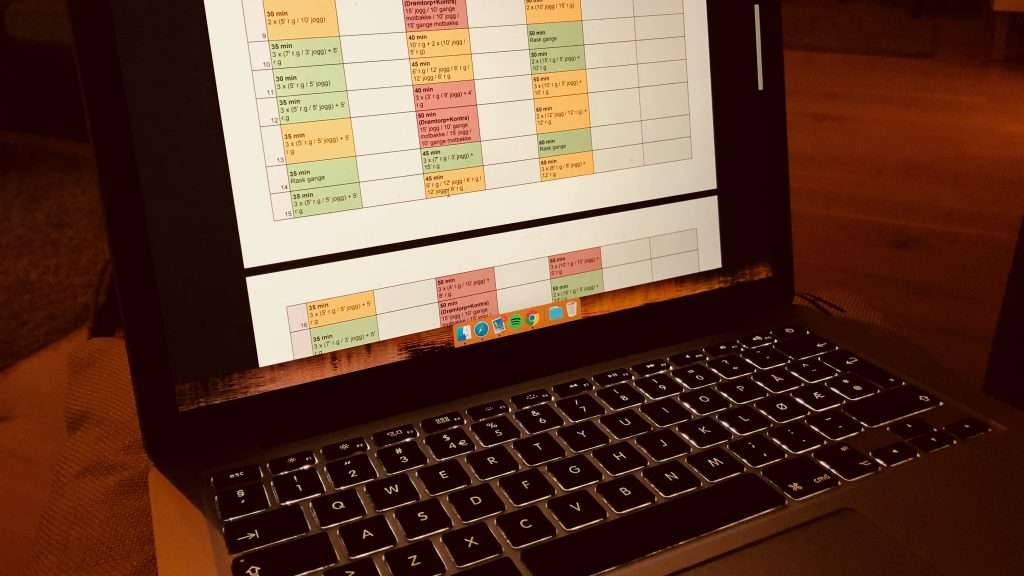As one year comes to an end, a new one beckons. A rite of passage for many runners is to use this time to reflect on what they have done over the past twelve months, and make plans for what’s ahead.
With the benefit of hindsight, we can identify apparent mistakes in the work we did. And, hopefully, we can learn and adjust our plans to make next year more productive than the one we are leaving behind.
If everything went right, and according to plan; I salute you! What’s more likely, however, is that your training suffered from unplanned interruptions. Perhaps it was injuries that sidelined you. Or other, more pressing demands of life got in the way.
Regardless, these disruptions likely leave you feeling that you could have done more, and performed better. That is why, this time around, you should make consistency your #1 running goal.
Impatience Is Not a Virtue
You are not alone. A common trait among runners is believing that if we can do just a little bit more, we will perform better. It is an unfortunate side effect of impatience.
Doing more, it turns out, is not the secret to progress. Consistency is. The work you can do each week, and each month, each year even, is the work that will let you realise your potential as a runner.
Speaking to the Norwegian podcast “I det lange løp” Henrik Ingebrigtsen summarised his family’s training philosophy this way:
“It is what you can do much of, consistently and over time, that will make you good.”
Henrik Ingebrigtsen
Great is The Enemy of Consistency
When it comes to running, and much else in life, Brad Stulberg argues, the old adage that “good is the enemy of great” from self help literature is downright detrimental. The phrase indicates that you should always strive to do your best to realise your potential.
While leaving it all out there every time you lace up your fast shoes for a workout might sound sensible, it is an unsustainable approach to training. If you try to do the maximum amount of mileage you are capable of each week, you will break down.
Instead, the key to maximise performance is to do what is sustainable. In running, that means to train within yourself. To do no more each week than you are capable of recovering from, so that you can do it all again next week.
Race Cars and Training Load
Keeping training load at a sustainable level is akin to driving a race car. At a lower speed, you can easily handle the car. However, as you speed up, your control over the car diminishes.
Similarly, staying in control of your cumulative training load is a simple task when you keep the overall combination of volume and running intensity at a low level. But as you increase the amount of training, and the intensity of your workouts, you will struggle to stay in control.

The load will accumulate over days, weeks, and months. Making sure that you’re approaching a turn at the appropriate speed, is difficult when you’re going fast — just as trying to avoid overreaching is difficult at a high training volume.
In the end, if you push the throttle just a tiny bit too much, you will crash. On the race course, and in your training. And you’ll find yourself on the sidelines.
Stay in Control to Maximise Consistency
As with driving race cars, the solution when it comes to managing training load is to err on the side of caution.
Consistency, it turns out, is not about pushing through under all circumstances. Finding consistency is a balancing act. It is about finding the balance between doing enough, but not too much.
Instead of planning to do the most training you think you can manage, change your mindset this coming year. Plan to do the training that you know you can get through. Week after week, month after month. Make consistency your most important running goal.
By optimising for consistency, you will become a better runner. And you don’t have to take my word for it. Listen to the trail blazer from the most famous family of runners over the past decade instead.
“If you can devise a template for what you can do each week, and never deviate from the plan, and do what you’re supposed to do according to your plan, you will get results over time.”
Henrik Ingebrigtsen
Like this?
Let me know by sending me an email at lc@run161.com.
